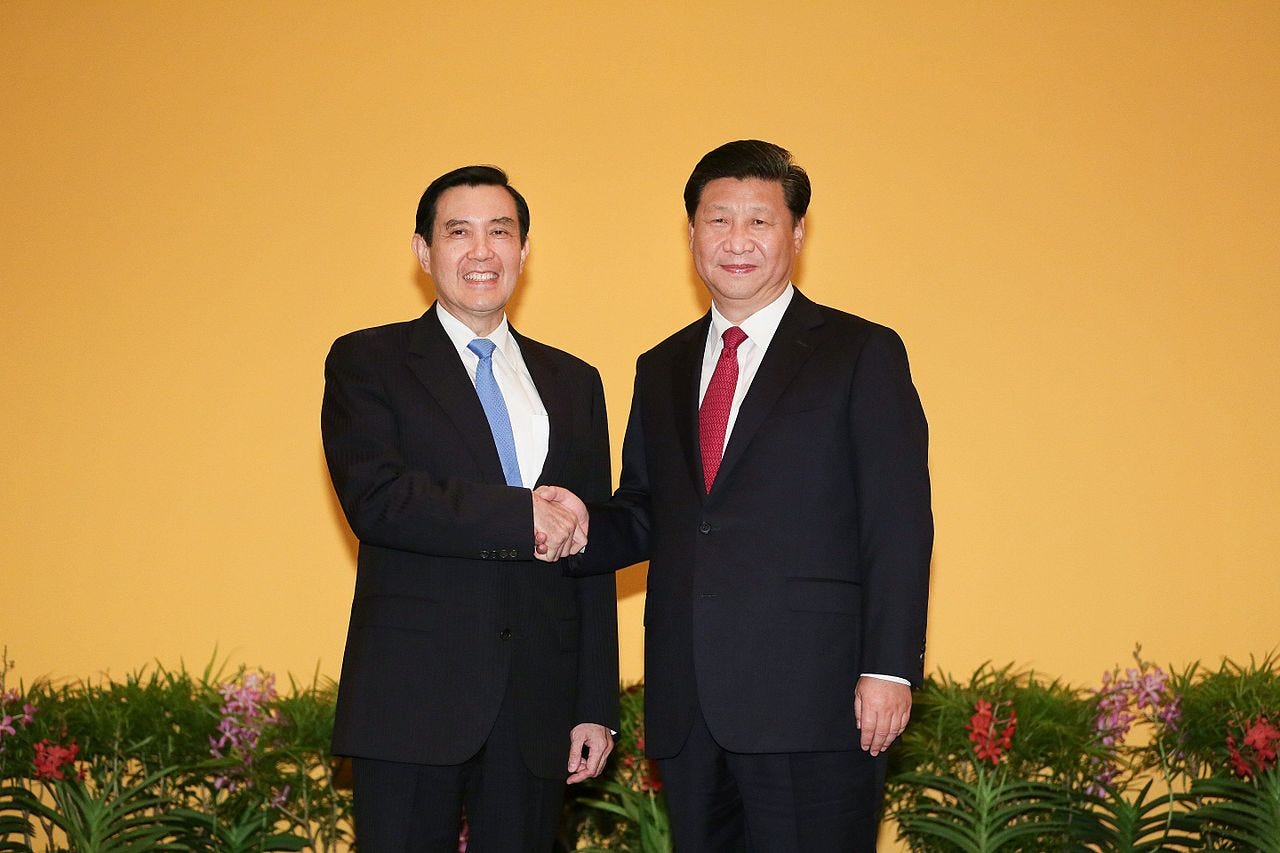After the Second World War, with the external threat of Imperial Japan neutralized, China resumed its civil war. Mao Zedong’s Communists prevailed, driving Chiang Kai-Shek and his nationalist government off the mainland entirely in 1949. The latter brought with him enormous reserves of gold and bricks of foreign currency, as well as two million people—soldiers, intellectuals, businessmen, and other elites—to quick-start his government-in-exile. Everything else, Mao seized.
The Republic of China established itself on the island of Taiwan, with Taipei as its “wartime capital;” the People’s Republic of China assumed control of the mainland. Much has changed in the 74 years since, but not the geography. It has been the policy of the PRC since 1949 to complete the revolution by reuniting Taiwan with mainland China.
“China’s lockstep and always has been that Taiwan is part of China,” says John Fowler, the Australian former diplomat, co-founder of the foreign affairs publication International Intrigue, and my guest on today’s PREVAIL podcast. “And it’s really important, I think, for people to understand that, no matter what happens, the Communist Party’s legitimacy almost now rests on the goal of reuniting Taiwan as part of the mainland of China.”
Until the 1970s, the West refused to recognize the PRC. “China” meant the Chiang government in Taipei. Neither was a free country. Mao established the sort of Big Brother-like Communist operation that freaked out folks living in Western democracies. Chiang set up a more traditional military dictatorship. There was single-party rule in both places, with the attendant purges.
Chiang Ching-kuo, the son of the former nationalist leader who took over the ROC upon his father’s death, announced a suspension of martial law in 1987. In 1988, Taiwan began its successful transition to Western-style democracy, and now boasts one of the freest governments in the region. It will be a major blow to the global democratic movement if one of the most open societies in Asia falls to the despotic PRC.
For three quarters of a century, the U.S. has worked to prevent renewed hostilities between the two Chinas. With Russia’s successful invasion and annexation of Crimea in 2014—an illegal act of war that elicited a yawn from the international community—there is fear that Beijing will interpret the West’s “meh” response as a green light to do the same in Taiwan. The Ukraine expert Victor Rud has warned of this, on the PREVAIL podcast and elsewhere.
Putin’s subsequent invasion of the rest of Ukraine, however, may have, paradoxically, operated as a deterrent in Beijing. “I think China now is looking at Ukraine, going, ‘Oh, shit. Like, Russia bit off way more than it can chew,’” says Fowler, who was stationed in China as a diplomat. “Europe and the U.S. and some other countries probably weren’t that kind of close in their coordination, and now they are lockstep, and they are funding the defense of a country that—really if we’re perfectly honest and realpolitik about it, the U.S. doesn’t have any interest in Ukraine really, other than stopping Russia doing what it wants.”
The West’s immediate and relatively unified response to the invasion of Ukraine, Fowler says, likely gives China pause with regard to Taiwan. “I think Beijing wishes Russia didn’t do it, to start off with, in that sense. And I think they look at [Ukraine] and go, ‘Okay, we need to be extra, extra, extra careful about Taiwan.’”
One of the early Chinese Communist leaders who found himself purged was Xi Zhongxun, a particularly capable Mao associate known for favoring diplomacy and soft power over the use of unnecessary violence. His son, Xi Jinping—a boy during his father’s ouster—is now the general secretary of the CCP and the president of the People’s Republic of China. Xi has spent his time in charge consolidating his vast power. Presumably, he wants to keep it.
“The one thing that Xi Jinping cannot let happen,” Fowler tells me, “is a military invasion of Taiwan that fails. That’s potentially the end of the regime in China—potentially.”
LISTEN TO THE PODCAST
S5 E12: International Intrigue (with John Fowler)
Greg Olear’s guest is the former diplomat John Fowler, co-founder of International Intrigue, a media outfit that provides smart, insightful, and witty commentary on global politics. They first discuss the politics of John’s native Australia, and then turn their attention to China, the country where he served as a diplomat: Xi, the possibility of China ever becoming a democracy, Hong Kong, the oppression of the Uyghurs, China’s Belt and Road Initiative, Beijing’s relationship with Moscow, and the Taiwan situation.
Follow John:
https://twitter.com/johnsnonsense
Follow International Intrigue:
https://twitter.com/intintrigue
Subscribe to the International Intrigue newsletter:
https://www.internationalintrigue.io/
Listen to the podcast:
https://rss.com/podcasts/internationalintrigue/
PROGRAMMING NOTES:
There will be no new podcast episode next week. There will be a new episode of The Five 8 tonight:
Photo credit: Taiwan government. Presidents Ma and Xi at the first meeting between leaders of Taiwan and mainland China in 66 years, in Singapore in 2016.





All of these little men (and they are almost invariably little men) playing RISK with the countries of the world, capturing territories with a roll of the dice, and of course, who has the biggest army to do it. Rodney King famously said, "Can't we all just get along?" The answer is no. No, we can't. This has gone on throughout history and will go on when everyone alive today is gone. It's the way of the world. In a few centuries, we will be doing the same things on Mars or wherever we take our poison next.
Absolutely riveting Five/8 with Denver Riggleman. All three of you were on fire! Teased up for what's next for Denver in the coming weeks. Why can't there be more Republicans like him in our "body politic"?